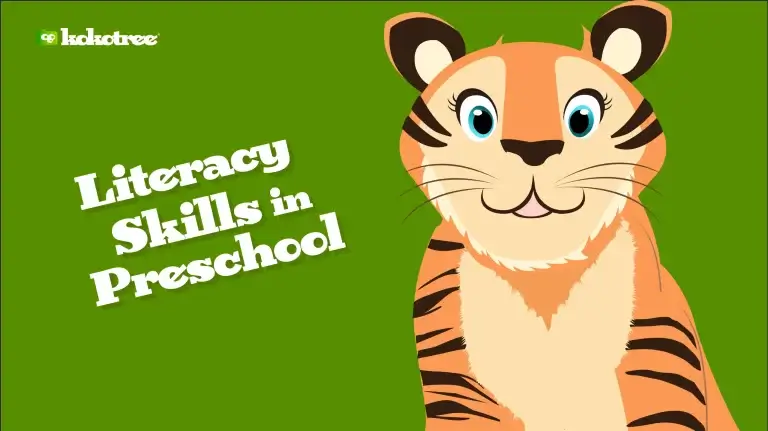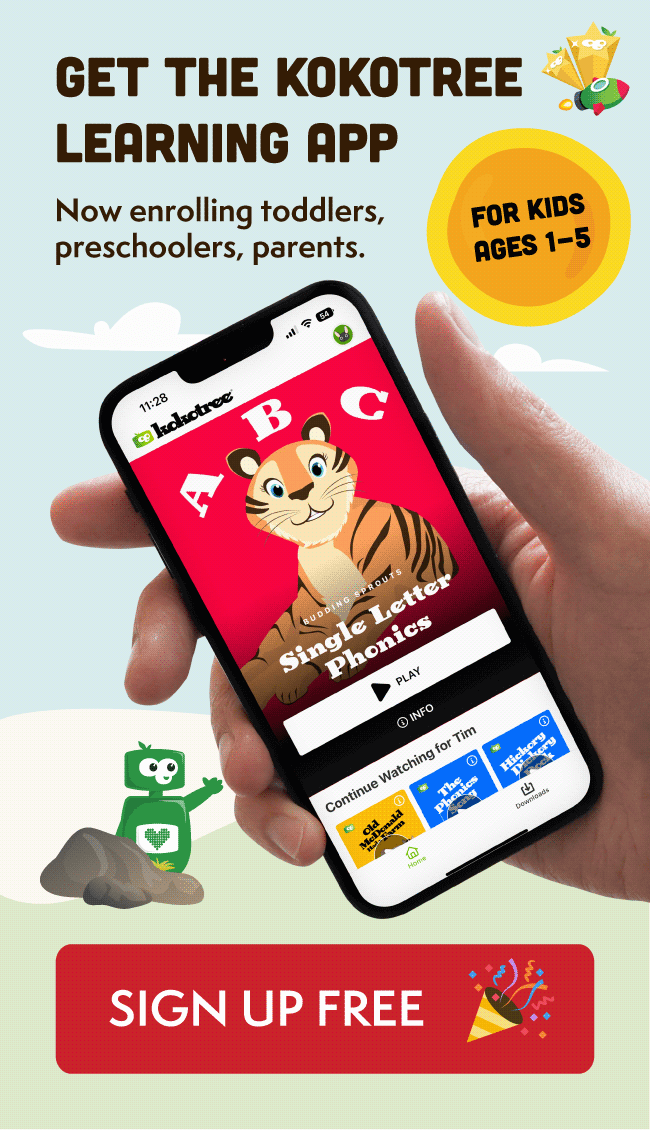

Language and literacy skills are some of the essential learning concepts kids can learn in preschool. Kids with solid language and literacy skills are more likely to excel in school and beyond.
Language and literacy skills for preschoolers include listening, talking, reading, and writing. These skills help your child understand, communicate, and interact with the world. Teachers can help your child to use their communication skills to learn new concepts.
Preschoolers improve their ability to comprehend and narrate stories, become more adept conversationalists, and learn the fundamentals of written language. These talents are best nurtured through activities incorporating children’s interests, effort, and curiosity. Preschoolers will seek to master early reading and writing abilities as long as they are associated with significant activity.
At a high level, preschoolers are usually learning “pre-literacy” skills, such as:
Preschoolers should learn language and literacy skills to be successful in school. According to the National Association for the Education of Young Children, children who are not proficient in language and literacy skills by the end of third grade are four times more likely to drop out of high school. That’s why preschoolers need to develop strong language and literacy skills.
There are many ways for kids in a preschool curriculum to learn these essential skills. They can read books, write stories, play word games, and more. But one of the best ways for them to know is through interactive activities with their parents or caregivers.
Preschoolers’ language development improves during play. They expand their communication abilities by describing and explaining things. They use increasingly complex word choices and syntax to express and present events. These spoken abilities lay the groundwork for grammar, vocabulary, and story comprehension that will aid in later learning to read.
Preschoolers become aware that print has meaning and that books are read from left to right. They learn that spaces separate words and that sentences begin with a capital letter. This understanding helps them follow along when someone is reading to them.
Preschoolers become aware of the individual sounds in words or phonemes—this is also called phonics. They learn that words are made up of these small units of sound. This awareness helps them understand that words can be broken down into smaller parts.
Preschoolers learn that letters are associated with sounds. They begin to understand that written symbols can represent spoken words. This knowledge helps them understand that print carries meaning and that they can use their knowledge of letter-sound associations to read terms.
Preschoolers begin to read simple books and stories. They match pictures with words and learn to read some high-frequency words by sight. This early reading helps them develop a love of books and a desire to read more.
Preschoolers learn to write their names and the names of familiar objects. They experiment with different ways of making marks on paper. This exploration helps them understand that written language represents spoken language.
Preschoolers learn to speak clearly and be heard. They practice using different types of sentences and asking questions. This development helps them understand and remember what they hear.
Preschoolers learn to listen carefully and follow directions. They pay attention to stories and remember what they have heard. This practice helps them understand and retain information.
Your child begins to understand that spoken words have meaning and can be represented by symbols such as letters. This understanding is the foundation for learning to read.
By the end of preschool, your child should know most letters in the alphabet and their corresponding sounds. This knowledge will help them sound out words when they start reading.
Preschoolers learn that words are made up of smaller units of sound or phonemes. They start to understand that some letters represent more than one sound. This knowledge helps them break down words into smaller pieces to read them.
Preschoolers learn new words every day. They understand the meanings of these words and can use them in conversation. A rich vocabulary helps children know what they read and hear.
Preschoolers learn to listen to and understand stories. They can answer questions about what they have read or heard. This understanding helps them connect what they read and their own experiences.
You can do many things at home to support your child’s language and literacy development. Here are some suggestions:
Read together — Make reading a part of your daily routine. Read aloud to your child for 20 minutes or more every day. Let them see you reading for enjoyment. As they age, please encourage them to read independently for pleasure.
Talk together — Talk with your child about the things you are doing throughout the day. Describe what you are doing and why. Ask them questions and encourage them to ask you questions.
Listen to your child — Give your child your full attention when talking to you. Show them that what they have to say is important to you.
Encourage your child to use their imagination — Play make-believe games with your child. Please encourage them to use their imagination and express themselves creatively.
Provide opportunities for your child to write — Give them a pencil and paper and encourage them to draw pictures and write stories. Help them sound out words and write down what they say.
Visit the library together — Take your child to the library and let them choose books that interest them. Read aloud to them and help them find information in books.
Talk about letters and sounds — Point out letters wherever you see them, such as in stores or street signs. Help your child notice the different sounds that letters make. Play games that involve rhyming and sounding out words.
Here are 24 things parents can do to support their child’s language and literacy skills.
By doing these things, parents can help support their child’s language and literacy development in a fun and engaging way.
There are many benefits of reading aloud to preschoolers, including developing a love of books, increasing their vocabulary, improving their listening skills, and helping them learn about new and different topics. Reading aloud to preschoolers can also help them develop a stronger bond with you.
Children will respond differently to different types of educational media. Some studies have shown that educational videos and apps can help preschoolers’ language and literacy skills. They can provide a fun and engaging way for children to learn new words and practice reading skills. It is essential to choose videos and apps that are appropriate for your child’s age and interests.
Kokotree is an educational app for kids that aids parents and teachers in providing their kids with a well-rounded education. Kokotree offers various educational videos, applications, games, and activities covering all academic disciplines. In addition, Kokotree provides resources to monitor your child’s development and provide real-time feedback on their progress. You can be confident that your youngster is getting the most out of their schooling using Kokotree.

Get free parenting tips, news, updates, and content from Kokotree.




